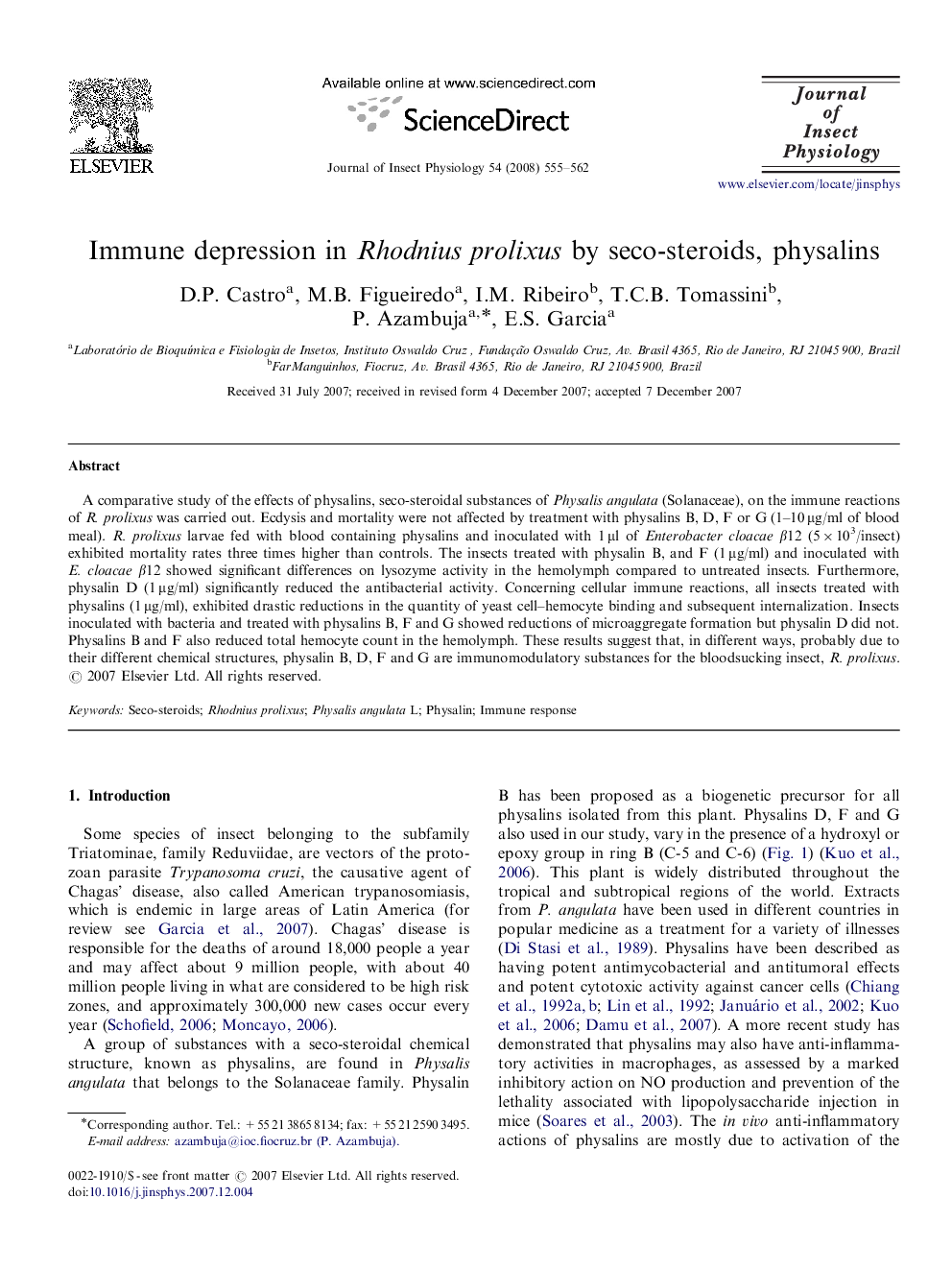| کد مقاله | کد نشریه | سال انتشار | مقاله انگلیسی | نسخه تمام متن |
|---|---|---|---|---|
| 2841362 | 1165393 | 2008 | 8 صفحه PDF | دانلود رایگان |

A comparative study of the effects of physalins, seco-steroidal substances of Physalis angulata (Solanaceae), on the immune reactions of R. prolixus was carried out. Ecdysis and mortality were not affected by treatment with physalins B, D, F or G (1–10 μg/ml of blood meal). R. prolixus larvae fed with blood containing physalins and inoculated with 1 μl of Enterobacter cloacae β12 (5×103/insect) exhibited mortality rates three times higher than controls. The insects treated with physalin B, and F (1 μg/ml) and inoculated with E. cloacae β12 showed significant differences on lysozyme activity in the hemolymph compared to untreated insects. Furthermore, physalin D (1 μg/ml) significantly reduced the antibacterial activity. Concerning cellular immune reactions, all insects treated with physalins (1 μg/ml), exhibited drastic reductions in the quantity of yeast cell–hemocyte binding and subsequent internalization. Insects inoculated with bacteria and treated with physalins B, F and G showed reductions of microaggregate formation but physalin D did not. Physalins B and F also reduced total hemocyte count in the hemolymph. These results suggest that, in different ways, probably due to their different chemical structures, physalin B, D, F and G are immunomodulatory substances for the bloodsucking insect, R. prolixus.
Journal: Journal of Insect Physiology - Volume 54, Issue 3, March 2008, Pages 555–562